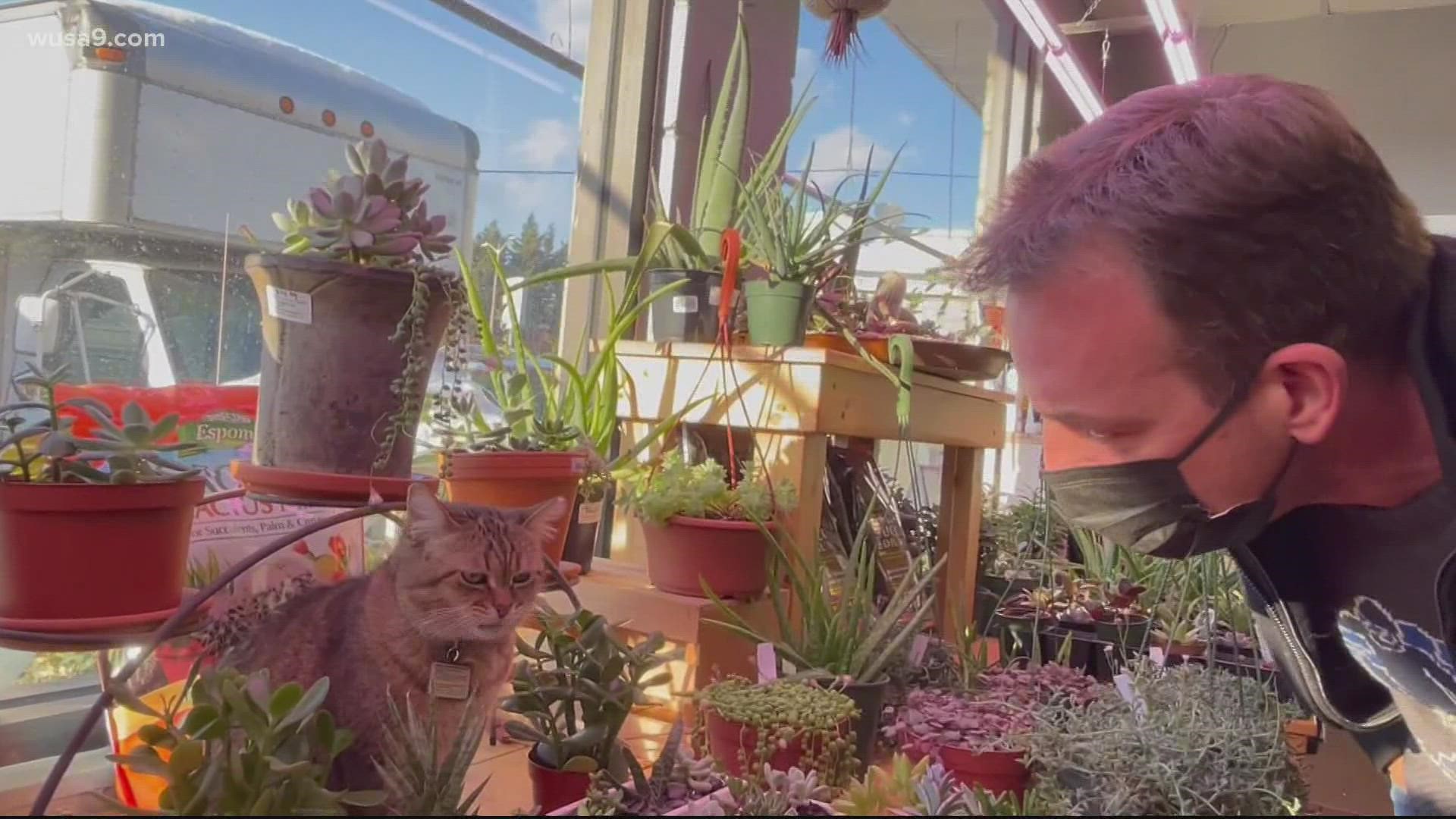ALEXANDRIA, Va. — You won't find a lot of businesses jumping at the chance to discuss their mice problems with a local media outlet. But, solving this problem created a new opportunity allowing for customer outreach and employee peace of mind.
Cats. Many of them just want to be left alone to their own devices, and 'Rue' is no exception. She wears the label 'blue-collar cat' as a badge of honor because very few cats make the cut to be knighted with such a lofty title.
The DC Humane Rescue Alliance's blue-collar cat "program", if you can call it that, accepts only a few select cats that must meet a rigorous array of criteria to qualify.
And before you ask, no. They don't have any up for adoption right now.
"Blue-collar cats are some of our under-socialized cats," says Ashley Valm from DC's Humane Rescue Alliance. "These are local cats from our D.C. population who have come into our shelter either as strays or community cats that weren’t able to stay in their location."
These cats aren't ripe for adoption to be placed in someone's home.
"For whatever reason, they’re not excited about being indoor cats. They’re not happy here. They like to be outside. They don’t really wanna hang out with people. So, we find a job for them to do instead," said Valm.
These blue-collar cats are akin to so-called barn cats that live on farms. They'll roam around during the day and settle in their home base farm at night.
But it's a bit more difficult for a cat to live that kind of a lifestyle in an urban area.
"Just through some friends, heard about the blue-collar cat program," said Tim Williams from Alexandria's Greenstreet Gardens. "We had a mouse problem. We sell birdseed. We sell grass seed. And mice tend to like those."
The urban location was what had Williams concerned.
"I sent them a message and said I’m on a busy street and I have lots of people here," said Williams. "We delayed probably a year because of that. None of us wanted to put a cat at risk even though that was the obvious solution."
The other issue with these blue-collar cats is that most of them tend to be anti-social.
"I didn’t need a cat that was friendly but I didn’t want it running off because it was terrified about the hundreds of people we can sometimes get through in a day here," said Williams.
"We’ve had a lot of demand with this program," said Valm. "The critter population in DC is varied but populous. So we get a lot of people reaching out wanting this kind of work."
Again, Valm says they do not currently have any blue-collar cats available for adoption.
Even for a cat like Rue, that was bequeathed the royal title of 'blue-collar,' she didn't take to the job right away.
"It took her several months before she realized mice existed," said Williams. "Somewhere after six months she caught her first one and after that, it was like three a day. She must have found every one on the property."
And then in typical proud kitty fashion, Rue had a tendency to show off her kills.
"Presenting them to us as gifts. Upfront where customers could see. Taking them into our office and laying them on the carpet," said Williams. "It was an awkward week."
Four years later, Rue is comfortable with Tim and the staff. She's the star of their Instagram page and offers a measure of therapy for employees putting in a long, stressful shift.
"She’s been an awesome addition to the team here even if all she does most of the day is sleep," said Williams.
Sign up for the Get Up DC newsletter: Your forecast. Your commute. Your news.
Sign up for the Capitol Breach email newsletter, delivering the latest breaking news and a roundup of the investigation into the Capitol Riots on January 6, 2021.

